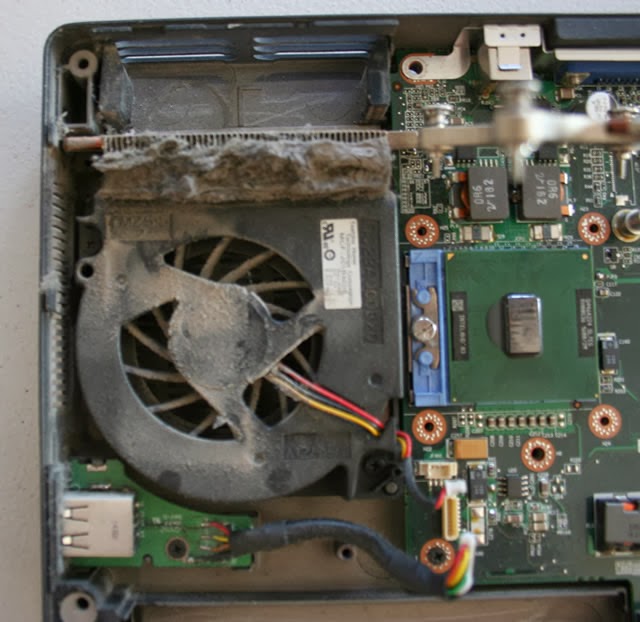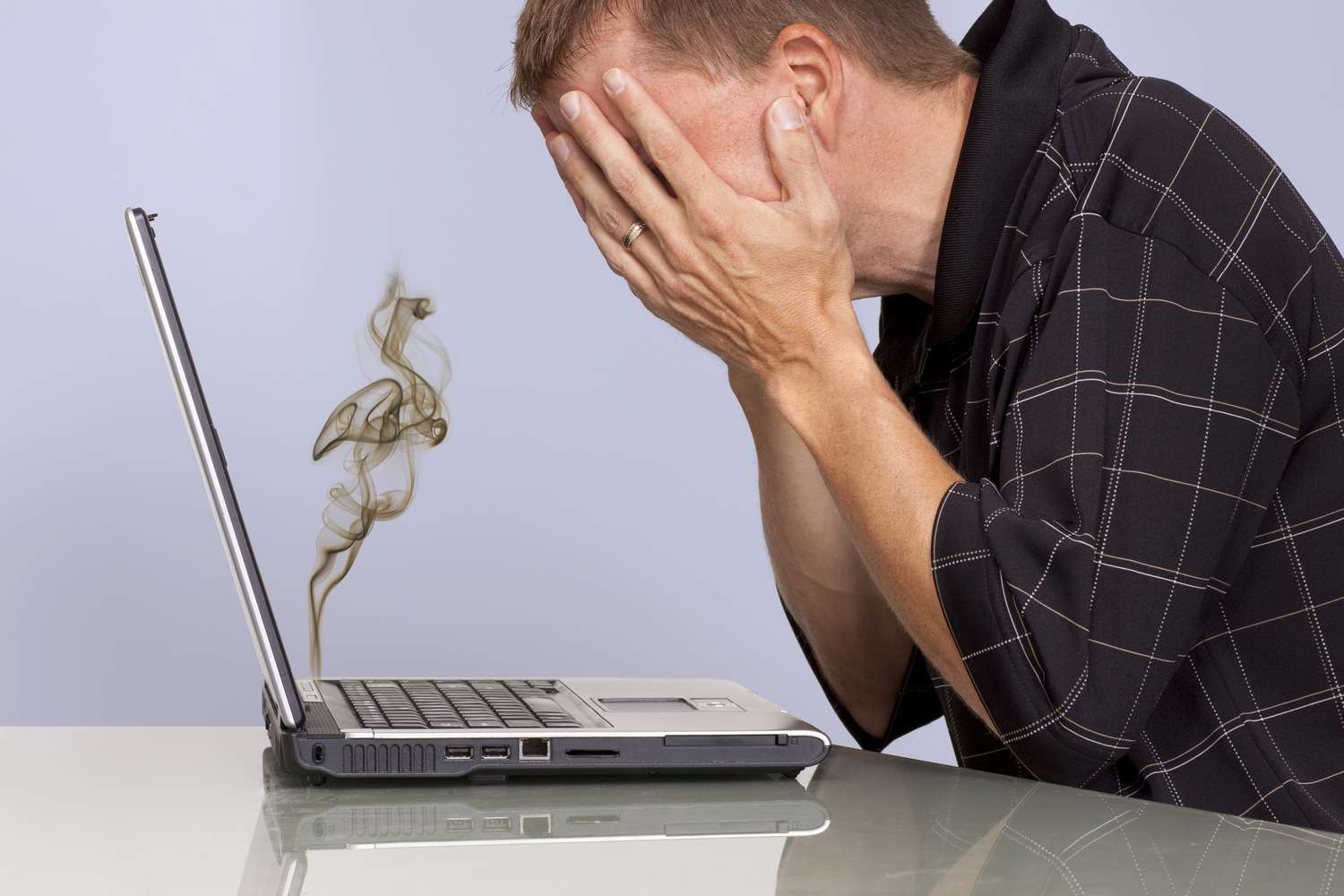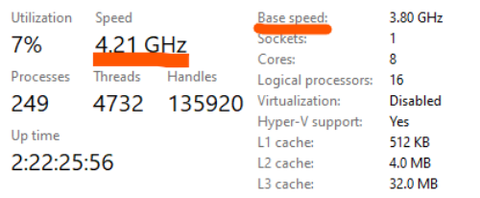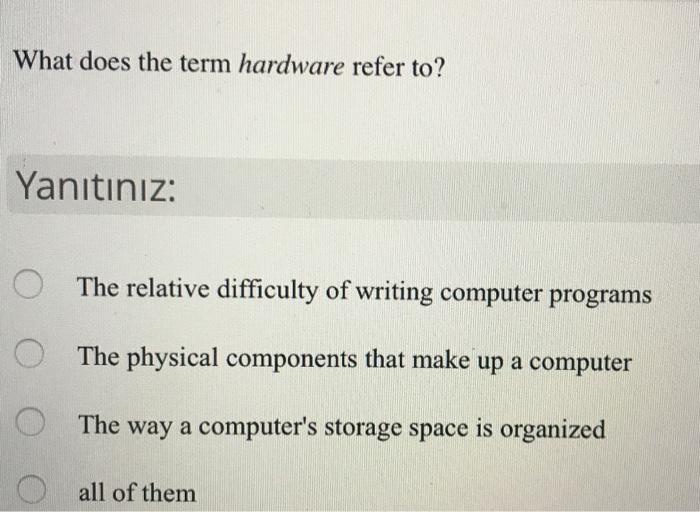Expert Tips: What to Do If Your Dishwasher Is Not Draining
Introduction
Picture this, your dishwasher cycle ends, and you're ready to unload clean dishes, but instead, you find a pool of water at the bottom of your dishwasher. A dishwasher not draining is a common problem. This inconvenience can be caused by various reasons, from a clogged filter to a broken drain pump. The good news is, you can troubleshoot and solve some of these issues yourself, saving you time and money. In this guide, we delve deep into the reasons causing your dishwasher not to drain, how to solve such problems, when and how to seek professional help, and preventive measures to avoid future drainage issues.
Why is Proper Dishwasher Draining Essential?
Proper and effective drainage from your dishwasher plays a pivotal role in the overall functioning of your appliance. Understanding its significance not only helps in maintaining the hygiene levels but also prolongs the lifespan of your dishwasher. Here are three key reasons highlighting why efficient drainage is critical:
1. Inhibits Bacterial Growth and Odor: Stagnant water becomes a breeding ground for bacteria and mold, leading to unpleasant odors and potential health concerns.
2. Prevents Accumulation of Food Debris: Effective drainage ensures residual food particles do not remain in the dishwasher after a cycle, preventing more serious clogs.
3. Guarantees Thorough Cleaning: Properly drained dishwashers mean hygienically cleaned dishes, enhancing your health and safety.
Therefore, if you value hygiene, safety, and longevity of your appliance, maintaining an effective dishwasher drainage system is a non-negotiable aspect in your kitchen management.
What Could Possibly Cause Your Dishwasher Not to Drain?
As you deal with a dishwasher that's failing to drain properly, it's helpful to first understand what might be causing this issue. There are several potential culprits you can examine:
1. A blocked drain hose: Consider your dishwasher’s drain hose as a vital river carrying water away from your dishwasher. If there's a blockage, it's like a dam has been built across the river, preventing the water from passing. The un-drained water then accumulates at the base of your dishwasher, leading to inefficient cleaning cycles and even breeding bacteria.
2. A clogged filter: Your dishwasher's filter plays a crucial role in preventing food debris from blocking up the works. As time passes, this debris can accumulate on the filter, forming a blockage that obstructs water flow. The water can’t bypass this blockage and ends up pooling inside your dishwasher.
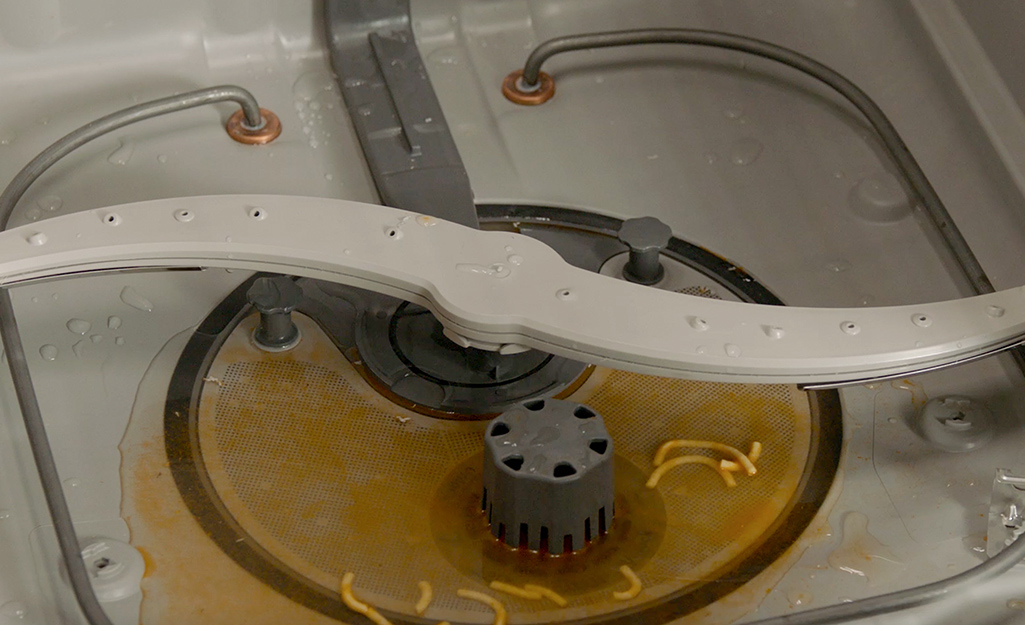
3. A broken drain pump: The drain pump in your dishwasher is akin to a mechanical heart, pumping water out of the appliance. When it fails, the water has nowhere to go, resulting in inefficient disposal of wastewater.
Understanding whether it's a blocked hose, clogged filter, or broken drain pump causing your dishwasher's drainage issue is the first step towards solving the problem. Being able to identify these problems will largely depend on your familiarity with your appliance. However, fear not! Even without prior experience, many of these issues can be fixed at home — and we'll show you how.
How Can You Solve Your Dishwasher Drainage Issue at Home?
Navigating drainage issues with your dishwasher can often be performed without a professional's intervention. Here are some do-it-yourself remedies you can try:
The Role of the Dishwasher Filter in Drainage Issues
A common solution often lies in the maintenance of your dishwasher's filter. The filter is responsible for trapping food residues to prevent them from recirculating onto your dishes. Its efficiency impacts the overall functioning of your dishwasher, including drainage.
Steps to Clean the Dishwasher's Filter:
- Locate the filter - usually it's at the bottom of your dishwasher.
- Remove the filter - it can typically be untwisted and lifted out.
- Clean the filter by rinsing with warm water and using a soft brush to gently scrub off any residue.
- Once clean, replace the filter by twisting it back into place. It's recommended you clean your filter every three to six months, depending on use.
Drain Hose: A Potential Blockage Site
Your dishwasher's drain hose is another typical place where blockages can occur impacting drainage. This flexible pipe takes waste water away from the dishwasher.
Steps to Check the Drain Hose:
- Ensure your dishwasher is unplugged before proceeding.
- Locate the drain hose which usually connects to the sink's drainage.
- Disconnect the drain hose and inspect for any visible blockages.
- If you can't see any blockage, try flushing it out with water.
- For stubborn blockages, you may need a plumber's snake to help dislodge it.
The Impact of a Broken Drain Pump
The drain pump plays a vital role in removing water out of the dishwasher. If it's dysfunctional, the water remains trapped.
Steps to Handle a Broken Drain Pump:
- First, make sure your dishwasher is unplugged.
- Identify the drain pump, commonly found at the bottom of the appliance.
- If the pump fails to respond when tested, it may need replacing.
- Obtain a replacement pump - ensure it's the correct model for your dishwasher.
- Depending on your level of confidence and mechanical experience, you can attempt to replace the pump yourself or decide to hire a professional.
Resolving your dishwasher's drainage issue is often as straightforward as cleaning your filter, checking for a clogged drain hose, or fixing a faulty drain pump. However, it's essential to approach these DIY repairs safely, always remembering to unplug your dishwasher before starting. And remember, if these approaches don't solve the problem, calling in a professional could be the best course of action.
When is it Time to Seek Professional Help for Your Dishwasher Drainage Issue?
There are instances when your DIY troubleshooting falls short, and it's time to call in the professionals. Knowing when to seek expert help can save you time, additional costs, and potential damage to your appliance.
Symptoms that Speak for Professional Repair Services
If you notice any of the below symptoms persisting despite your DIY efforts, it's time to call in a professional:
- Persistent Drainage Problems: If your dishwasher still doesn't drain after you've cleared the filter and drain hose, a professional should take a look.
- Leakages: If there's water leaking from the dishwasher, this might indicate more serious problems requiring expert attention.
- Unpleasant Odors: Persistent bad smells might imply a more severe bacterial or mold issue that necessitates professional cleaning or repair.
- Unusual Noises: Odd sounds like loud grinding or high-pitched squealing could point to motor or pump issues that a professional should repair.
Criteria for Choosing the Best Appliance Repair Specialist
Choosing the right professional to fix your dishwasher can save you from additional repair costs and extend your appliance's lifespan. Here are a few tips to select the best appliance repair expert:
- Licensing and Certification: Confirm the technician is licensed and certified to perform home appliance repairs.
- Reputation: Check online reviews or ask for references to ascertain the service provider's competence and reliability.
- Experience: Ask how long the service has been operating and the experience level of their technicians.
- Pricing: While you don’t want to overpay, beware of services offering suspiciously low rates as this could indicate inexperience or even scam.
- Expertise: Ensure the technician has specific knowledge of your dishwasher brand and model.
In conclusion, understanding when to seek professional help is equally as crucial as knowing how to troubleshoot common drainage problems. Let the professionals handle issues that go beyond basic troubleshooting to ensure your appliance remains in the best working condition.
What Preventive Measures Can Keep Your Dishwasher Draining Properly?
Preventing any problem is ultimately more efficient than having to deal with one. This principle applies remarkably well to your dishwasher's draining system. Here are some proactive measures you can take to maintain optimal dishwasher drainage:
1. Regular Filter Cleaning: Aim to clean your dishwasher's filter every month. Routine cleaning prevents clogs and promotes more effective draining.
2. Smart Dish Loading: Overcrowding can lead to improper cleaning and drainage. Leaving some space between items ensures proper water circulation and draining.
3. Scrape Before Loading: Pre-rinse your dishes, removing large food particles before placing them in the dishwasher. This simple task reduces the likelihood of clogs developing in the filter or drain hose.
4. Periodic Hose Checks: Inspect the drain hose every few months. Check for, and remove, any build-up or blockage, preventing a potential drainage issue.
5. Frequent Spray Arm Cleaning: The spray arms contribute to effective cleaning. Remove them every few months for a thorough clean to ensure they don't get clogged, affecting water circulation and draining.
These preventive steps will help maintain your dishwasher in top shape, ensuring optimal performance and longevity. With a bit of routine care, you can avoid most drainage issues and increase the efficiency of your dishwasher.
Conclusion
A dishwasher is a time-saving appliance that becomes a significant inconvenience when it fails to drain properly. Although many issues can be addressed at home, remember not to hesitate to seek a professional's help when necessary. Regular maintenance can prevent most drainage issues, ensuring your dishwasher works efficiently for a long time.
Related FAQs about what to do if your dishwasher is not draining
How often should I clean my dishwasher's filter to avoid drainage issues?
For the efficient functioning of your dishwasher, it's recommended to clean the filter every month. However, the frequency might differ based on your model and usage. Regular cleaning prevents clogs, enhancing drain performance, and maintaining hygiene.
Can I fix a broken drain pump on my own, or should I essentially hire a professional?
Fixing a broken drain pump depends on your familiarity and comfort with appliance repair. If you're confident, you can attempt it. However, if you're unsure, it's best to hire a professional to avoid causing additional damage to the dishwasher.
Aside from not draining, what other signs should alert me of a problem with my dishwasher?
Intense, persistent odors can indicate drainage issues or bacterial growth. Also, unusual noises may signal motor or pump problems, while poor dish cleanliness can suggest water circulation issues or a malfunctioning spray arm.


